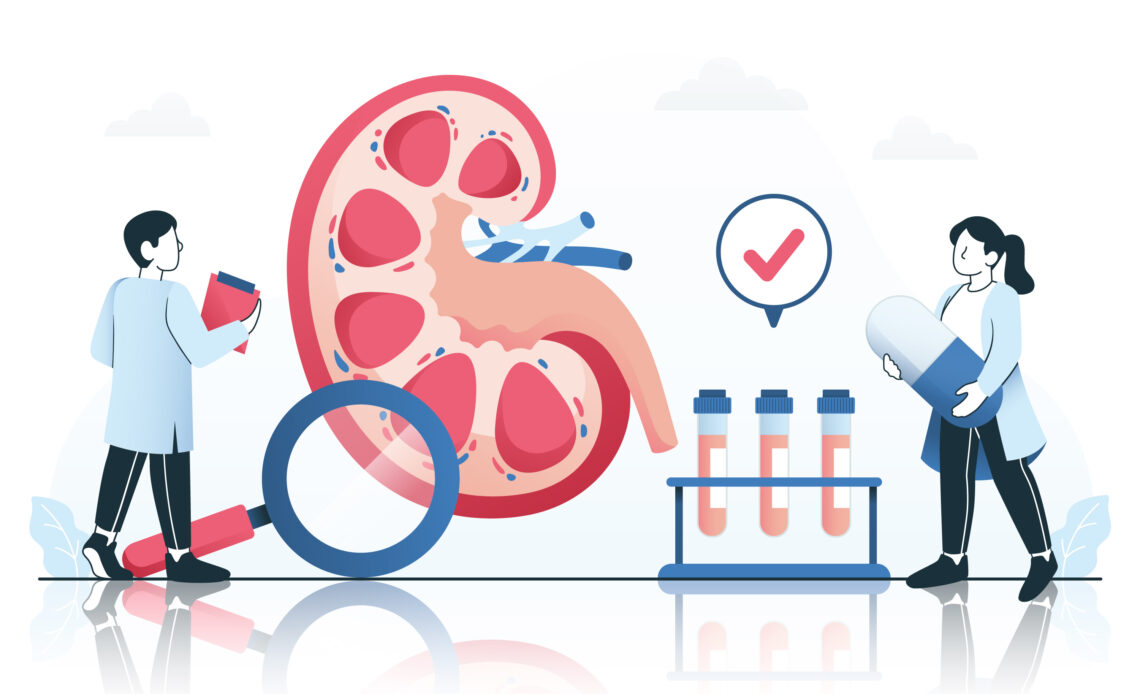Before exploring the interplay between these organs, let us first understand their individual roles within our bodies. The kidneys, often referred to as the body’s filtration system, are responsible for removing waste and excess water from the bloodstream, regulating blood pressure, and producing hormones essential for red blood cell production and bone health. On the other hand, the heart, the relentless powerhouse, pumps oxygenated blood throughout the body, ensuring that every cell receives the nourishment it needs to thrive.
The impact of kidney health on heart health
The connection between kidney and heart health becomes evident when we consider the intricate relationship between these two vital organs. Impaired kidney function can have far-reaching consequences on the cardiovascular system, leading to a cascade of complications.

- Increased Blood Pressure: When the kidneys are compromised, their ability to regulate blood pressure is hindered, resulting in hypertension. This persistent elevation in blood pressure places immense strain on the heart, forcing it to work harder and potentially leading to heart disease.
- Fluid Retention: Kidneys play a crucial role in maintaining the delicate balance of fluids in the body. When they are impaired, the kidneys may accumulate excess fluid, straining the heart and potentially leading to conditions like congestive heart failure.
- Anemia: Healthy kidneys produce a hormone called erythropoietin, which stimulates the production of red blood cells. Kidney disease can disrupt this process, leading to anemia, which deprives the heart and other organs of the oxygen they need to function optimally.
- Electrolyte Imbalance: The kidneys regulate the levels of essential electrolytes like potassium, sodium, and calcium in the bloodstream. An imbalance in these electrolytes can disrupt the heart’s electrical activity, potentially leading to arrhythmias or other cardiac complications.
Common risk factors for both kidney and heart diseases
Interestingly, many of the risk factors for kidney disease and heart disease overlap, further solidifying the link between these two conditions. Some common risk factors include:
- Diabetes
- High blood pressure
- Obesity
- Smoking
- Family history
- Aging
Research findings on the link between kidney disease and heart disease

Numerous studies have shed light on the profound connection between kidney disease and heart disease. One significant study, published in the Journal of the American Society of Nephrology, found that individuals with chronic kidney disease had a substantially higher risk of developing cardiovascular complications, including heart attacks and strokes.
Another study, conducted by researchers at the University of California, San Francisco, revealed that even mild kidney dysfunction could increase the risk of heart failure and other cardiovascular events. These findings underscore the importance of recognizing and addressing kidney health as a key factor in maintaining a healthy heart.
Symptoms and warning signs of kidney and heart problems
Being aware of the symptoms and warning signs associated with both kidney and heart problems is crucial for early detection and intervention. Some common symptoms to watch out for include:
- Swollen ankles, feet, or hands (a sign of fluid retention)
- Fatigue or weakness
- Shortness of breath
- Chest pain or discomfort
- Irregular heartbeat
- Nausea or vomiting
- Decreased urine output
- Foamy or bloody urine
If you experience any of these symptoms, it is essential to consult with a healthcare professional promptly for proper evaluation and treatment.
Preventive measures to protect kidney and heart health
Adopting a proactive approach to maintaining both kidney and heart health is the key to minimizing the risk of complications. Here are some preventive measures to consider:

- Maintain a Healthy Diet: A diet rich in fruits, vegetables, whole grains, and lean proteins can help regulate blood pressure, control weight, and reduce the risk of both kidney and heart diseases.
- Exercise Regularly: Regular physical activity not only strengthens the heart but also helps manage weight, blood pressure, and blood sugar levels, all of which contribute to better kidney and heart health.
- Manage Chronic Conditions: If you have conditions like diabetes or high blood pressure, it is crucial to work closely with your healthcare provider to manage them effectively. Uncontrolled chronic conditions can significantly increase the risk of both kidney and heart problems.
- Stay Hydrated: Adequate hydration is essential for kidney function and maintaining a healthy blood pressure level, both of which support heart health.
- Quit Smoking: Smoking is a significant risk factor for both kidney and heart diseases. Quitting smoking can significantly reduce your risk and improve overall health.
Lifestyle changes for improved kidney and heart health
In addition to preventive measures, adopting specific lifestyle changes can have a profound impact on both kidney and heart health. Here are some recommended lifestyle modifications:
- Weight Management: Maintaining a healthy weight through a balanced diet and regular exercise can reduce the strain on both the kidneys and the heart, lowering the risk of complications.
- Stress Reduction: Chronic stress can contribute to high blood pressure and inflammation, both of which can negatively impact kidney and heart health. Incorporating stress-management techniques, such as meditation, yoga, or deep breathing exercises, can be beneficial.
- Limit Alcohol Consumption: Excessive alcohol consumption can damage both the kidneys and the heart. Moderation or abstinence is recommended to protect these vital organs.
- Regular Check-ups: Scheduling regular check-ups with your healthcare provider can help monitor your kidney and heart health, allowing for early detection and intervention if necessary.
Treatment options and management strategies for kidney and heart diseases
If a healthcare team diagnoses you with either kidney disease or heart disease, they must work closely with you to develop an appropriate treatment and management plan. Treatment options may include:
- Medications: Depending on the specific condition, medications may be prescribed to manage blood pressure, control cholesterol levels, or address other underlying factors contributing to kidney or heart disease.
- Dialysis: In cases of advanced kidney disease, dialysis may be necessary to filter waste and excess fluids from the body, helping to reduce the strain on the heart.
- Lifestyle Modifications: Adopting healthy lifestyle changes, such as those mentioned earlier, can often be an integral part of the treatment plan, complementing medical interventions.
- Surgical Interventions: In severe cases, surgical procedures like angioplasty, stenting, or bypass surgery may be recommended to improve blood flow and alleviate the strain on the heart.
- Kidney Transplantation: For individuals with end-stage renal disease, a kidney transplant may be considered as a treatment option, potentially improving both kidney and heart health.
Conclusion
The intricate design of our bodies and the delicate balance required for optimal well-being demonstrate the strong connection between kidney and heart health. By recognizing this hidden link and taking proactive steps to protect both our kidneys and our hearts, we can significantly reduce the risk of life-threatening complications and enjoy a healthier, more vibrant life.
Remember, our kidneys and heart work in tandem, and caring for one inevitably supports the other. Embrace a holistic approach to your health, prioritizing preventive measures, lifestyle changes, and timely medical interventions when necessary. Together, we can unveil the true potential of this overlooked connection and pave the way for a future where kidney and heart health are celebrated and cherished.
If you’re concerned about your kidney or heart health, don’t hesitate to schedule an appointment with your healthcare provider. Early detection and proactive management can make a significant difference in your overall well-being. Take the first step today by requesting a comprehensive health evaluation, including tests to assess the function of your kidneys and heart. Remember, investing in your health is an investment in your future, and small steps today can lead to a lifetime of vitality.


